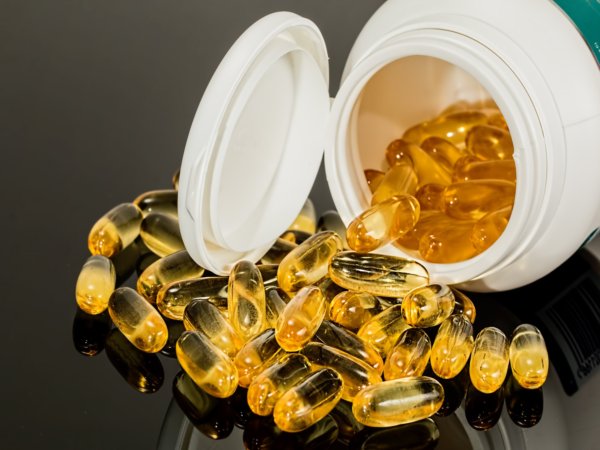 There are two common forms of strokes: ischemic and hemorrhagic. Of the two types, ischemic strokes are the most common, accounting for approximately 85-90% of all strokes. But most of the risk factors for stroke can be controlled. The incidence of stroke is also very sensitive to nutritional and lifestyle issues. As a result, here are the top four supplements I recommend to prevent stroke.
There are two common forms of strokes: ischemic and hemorrhagic. Of the two types, ischemic strokes are the most common, accounting for approximately 85-90% of all strokes. But most of the risk factors for stroke can be controlled. The incidence of stroke is also very sensitive to nutritional and lifestyle issues. As a result, here are the top four supplements I recommend to prevent stroke.
• Folic Acid
Folic acid, or folate as it is often referred to, is a water-soluble vitamin found in high amounts in green leafy vegetables and whole grains. Folate is very important to prevent strokes because it helps metabolize a chemical your body naturally produces.
Homocysteine is a chemical produced from amino acid metabolism which is normally converted by an enzyme into the amino acid methionine.
As people age, their intake of folate can diminish and levels of homocysteine can increase. When this occurs, there are no symptoms but a blood test can measure homocysteine levels in the blood. However, this chemical is very toxic to the endothelial tissue which lines the arteries. Homocysteine can badly damage this tissue leading to cholesterol deposition, calcium deposits, blood clot formation, and endothelial dysfunction. This is definitely a good supplement for stroke prevention. I recommend taking 1-4 milligrams (mg) of folic acid daily depending upon your individual stroke risk factors.
• Grape Seed Extract
This product contains chemicals known as proanthocyanins which act as potent free radical scavengers. These chemicals also lower the degree of inflammation inside the artery wall and prevent the “bad” low-density lipoprotein (LDL) cholesterol molecules from being deposited on the inside of the artery walls. This process is the basis for the development of atherosclerosis. I recommend taking a supplement containing 200 mg of red grape seed extract on a daily basis.
• Magnesium
Magnesium is a mineral I like to recommend for vascular health because it can lower blood pressure inside the artery and reduce the high amounts of inflammation also accompanying the formation of arterial plaque. Magnesium can also improve insulin sensitivity which leads to less inflammation. I recommend taking this supplement for stroke prevention. Take 400-600 mg of magnesium citrate or orotate taken each day with meals in divided doses.
• Fish Oil
Fish oil derived from salmon, herring, krill, or seal contain high amounts of the omega-3 family of fatty acids. Omega-3 fats can reduce blood pressure, inflammation, LDL cholesterol, and blood clotting, and improve endothelial function. The regular consumption of omega-3 fats either in the form of seafood or supplements has been previously demonstrated to lower the risk of stroke. The recommended dosage is one gram three times per day with meals, as a supplement for stroke prevention.
Having a stroke can be very debilitating, but there are many ways you can prevent strokes. To prevent strokes, you must take care of your health, and taking these four supplements for stroke prevention can help.
Source(s) for Today’s Article:
Tu, W.J., et al., “Combination of high-sensitivity C-reactive protein and homocysteine predicts the shortterm outcomes of Chinese patients with acute ischemic stroke,” Neurol Res. May 28, 2013.
Larsson, S.C., “Dietary fats and other nutrients on stroke,” Curr Opin Lipidol. February 2013; 24(1): 41-8.
Razavi, S.M., et al., “Red grape seed extract improves lipid profiles and decreases oxidized low-density lipoprotein in patients with mild hyperlipidemia,” J Med Food. March 2013; 16(3): 255-8.
Larsson, S.C., et al., “Dietary fats and dietary cholesterol and risk of stroke in women Atherosclerosis,” Atherosclerosis. March 2012; 221(1): 282-6.
